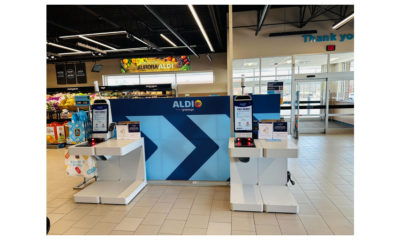Addie’s, a drive-up-only grocer, has opened its first concept store southwest of Boston, in Norwood, Mass. Its opening comes on the heels of the concept receiving $10.1 million in seed funding led by the Disruptive Innovation Fund, the venture capital arm of the Rose Park Advisors founded by the late Clay Christensen. (Christensen authored several high-profile business books, including “The Innovator’s Dilemma.”)
Instead of patchworking together in-store grocery, online grocery and direct-to-consumer delivery models, Addie’s said it has built an entirely new one: a pick-up-only store designed solely for stocking, storing and bagging groceries without the need for a shopper to step foot in the store itself.
“We believe that taking better care of busy families should be done in a way that also takes care of our team, our community and our planet,” Jim McQuade, co-founder and CEO of Addie’s, said in a news release. “With our seed funding, we’ve built an end-to-end experience to serve people in and around Norwood in a way that can be replicated in suburbs nationwide. We look forward to quickly expanding, offering busy families across the country drive-up grocery convenience without compromise.”
Similar sentiments were expressed by Matt Christensen, CEO and Managing Partner at Rose Park Advisors.
“The 100-year-old grocery business is not immune to disruption,” he said “The traditional business model of in-store shopping makes serving convenience-focused shoppers highly challenging. We see disruptive potential in Addie’s technology-powered drive-up grocery model and are excited to support them as they launch.”
Addie’s said its concept saves time, money and resources by redesigning the store as an onsite warehouse and the parking lot as a drive-up experience. These savings translate to higher starting wages for store employees ($20 per hour), all while maintaining competitive pricing for customers and using just a quarter of the energy required of regular supermarkets.
Advertisement


 Photo Gallery7 days ago
Photo Gallery7 days ago
 Headlines6 days ago
Headlines6 days ago
 Headlines1 week ago
Headlines1 week ago
 Headlines2 weeks ago
Headlines2 weeks ago
 Headlines1 week ago
Headlines1 week ago
 Designer Dozen2 weeks ago
Designer Dozen2 weeks ago
 Special Reports2 weeks ago
Special Reports2 weeks ago
 Designer Dozen5 days ago
Designer Dozen5 days ago

















